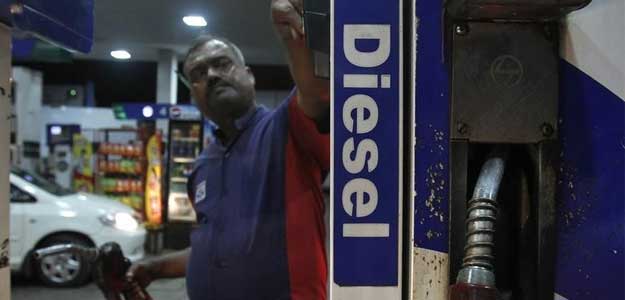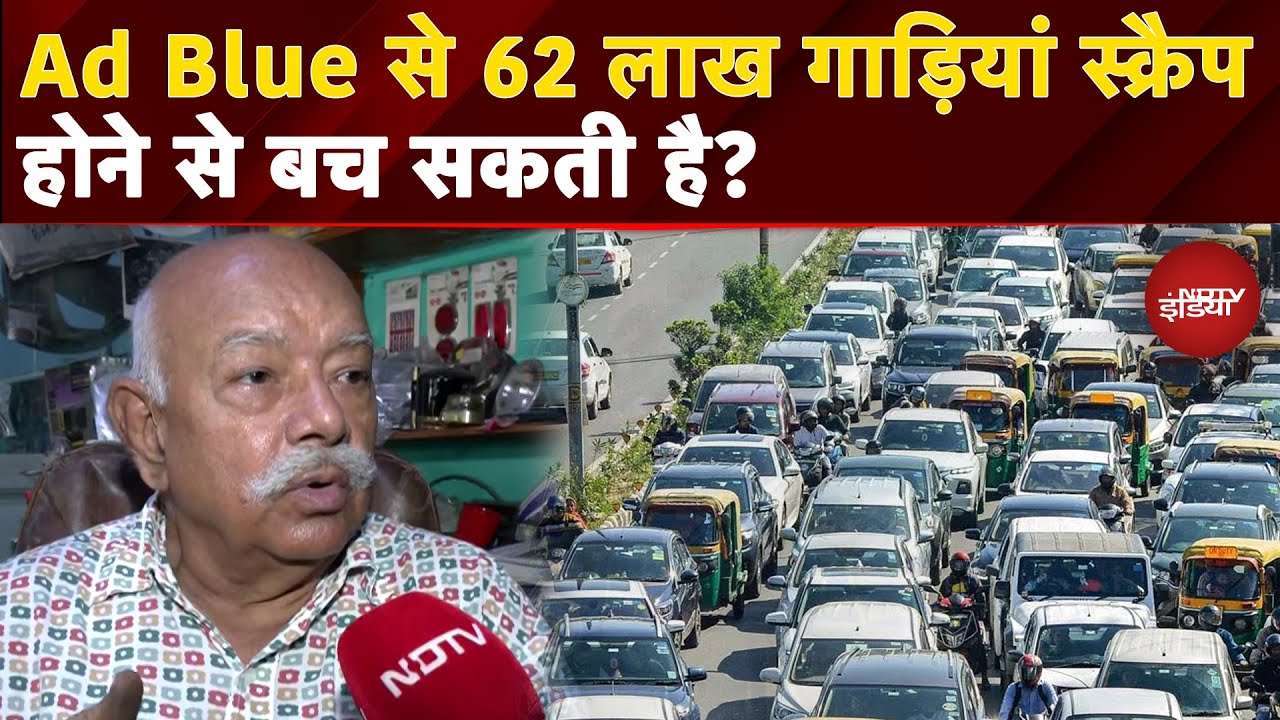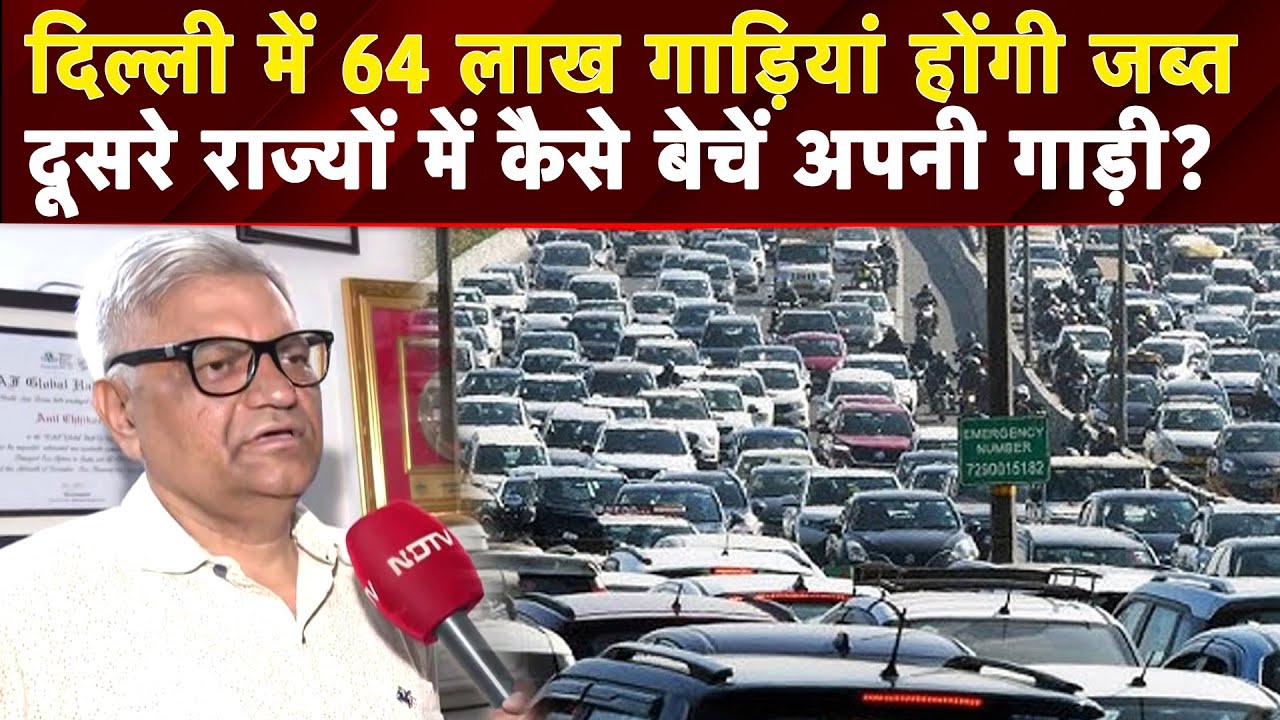- Home/
- Around 1 Million Diesel Vehicles Could Be Banned In The Delhi-NCR Region If AQI crosses 450
Around 1 Million Diesel Vehicles Could Be Banned In The Delhi-NCR Region If AQI crosses 450

Highlights
- Government will allow only BS6 compliant diesel vehicle to ply in Delhi.
- Around 9.50 lakh diesel vehicle in Delhi don't comply with BS6 standards.
- Overall, only 1.12 million vehicles in Delhi conform to BS6 norms.
The dropping air quality index (AQI) in the Delhi-NCR region has been one of the major concerns of the government and it could now ban close to 9.50 lakh diesel vehicles (including private cars) from plying on Delhi-NCR roads. The government will ban these vehicles if air pollution levels are projected to cross the air quality index of 450. Authorities on Wednesday unveiled a revision to the Graded Response Action Plan to fight air pollution, which includes a direction to authorities to stop diesel vehicles from being used in Delhi and adjoining NCR cities if the AQI is projected to rise above 450. An analysis of government data suggests there could be a crisis for commuters if adequate arrangements are not made.

The only diesel vehicles that can be driven are the ones that comply with the Bharat Stage VI tailpipe emissions standards.
An analysis of vehicle data showed that there are 942,447 of these vehicles in Delhi alone. The only diesel vehicles that can be driven are the ones that comply with the Bharat Stage VI tailpipe emissions standards. The national capital has 10 million registered vehicles, with 1.12 million of these conforming to BS6, a standard that became mandatory for all new cars registered after April 1, 2020. Emission standards puts a cap on the maximum limit of pollutants a vehicle can emit for it to be legally approved. Diesel vehicles typically emit significantly higher amounts of nitrogen oxides (NOx) compounds, which have a significant impact on human health. BS6 compliant diesel vehicles are equipped with diesel particulate filter (DPF) and catalyst reductor helping them to emit less than a third of the volume of NOx they were allowed to under the BS4 standards. That said, only a tenth of all 10 million vehicles registered in Delhi comply with the new, less-polluting BS-VI standard.

Over 10 years old diesel vehicles are considered to be de-registered in the Delhi-NCR region.
The Commission of Air Quality Management (CAQM), which revised the Grap, has also allowed National Capital Region (NCR) states to ban the use of BS-III petrol and BS IV diesel cars in the third stage of curbs, which is meant to be activated if the AQI is projected to go beyond 400. As per government records, Delhi has 2,957,630 registered BS-III (BS3) vehicles. Diesel vehicles older than 10 years are deemed de-registered in the Delhi.
Few people requesting anonymity have raised concern over the decision calling it a kneejerk step and have questioned the trustworthiness of PUC tests in the city. "Instead of putting up a ban or restriction on vehicles, can't they make the PUC tests more trustworthy," BS Vohra, president of east Delhi RWAs joint front told Hindustan Times. Every year, the crisis begins when North India is shrouded in smoke from farm fires in states of Punjab and Haryana, where farmers set fire to miles and miles of paddy fields after harvest to clear them of residue.
Source:Hindustan Times
Latest Stories
- Edited by Abhinav Singh | Monday September 08, 2025
Study attributed 72-92% of mercury emissions to human activities, primarily from fossil fuel combustion, industrial activities & vehicular emissions.
- NDTV Health Desk | Saturday September 06, 2025
He mentioned that immunity is influenced by various factors beyond diet, including proper sleep.
- Edited by Nikhil Pandey | Tuesday September 02, 2025
A typical 10-20 minute hair styling routine using common hair care products and heated tools can release alarming levels of nanoparticle air pollution, comparable to standing by a busy highway, a new Purdue University study reveals.
- Written by Toshita Sahni , Edited by Neha Grover | Wednesday September 03, 2025
Mumbai's pav is traditionally baked in wood-fired ovens. However, due to their contribution to air pollution in the city, bakeries have been directed to adopt greener alternatives.
- Reported by Ishika Verma | Tuesday September 02, 2025 , New Delhi
At a review meeting on Monday, Environment Minister Manjinder Singh Sirsa went over the city's revised State Action Plan on Climate Change, setting targets for 2050 across nine key sectors
................................ Advertisement ................................
Latest Videos
Opinion
Opinion | Why Indians Have Just Given Up On Air Pollution CrisisTanushree Ganguly
Friday December 20, 2024While some may argue that people in Delhi are now more aware of air pollution than they were a decade back, my rebuttal would be that awareness does not mean that people are concerned.
Opinion | You Must Outrage Over Filthy Air More Than Once A YearJyoti Pande Lavakare
Tuesday December 10, 2024Delhi welcomed us with monsoon rains and mangos. We were home. Fast forward a couple of years, in the winter of 2012, I found myself in denial about something other parents, mostly expats, were calling toxic air.
Opinion | Delhi's Air Pollution Situation Is Like A Bad MarriageNishtha Gautam
Friday November 22, 2024On a good day, such as today, the AQI reading in Delhi is 407. We are jubilant at the sickly sunshine trickling through the slightly dissipated smog. At least its not 1600.
दिवाली... पराली... सियासी जुगाली!Ashwini kumar
Monday November 18, 2024दिल्ली-एनसीआर में प्रदूषण का समाधान तो आज तक मिला नहीं. हर साल चिंतित होकर हम-आप सांसों की तकलीफ के साथ-साथ दिल और ब्लड प्रेशर के मरीज भी क्यों बनें?
घर में कैद बुजुर्ग और हांफते लोग, दिल्ली की सांसों में घुला ये कैसा रोग?Nidhi Kulpati
Friday November 08, 2024हमारी हवा जहरीली हो रही है. गुरुवार की शाम को जब मैं इस मुद्दे पर लिखने बैठी तो AQI लगातार 400 पार जाकर दम घोंट रहा था. बहुत लोगों को यह मामला बोरिंग लगे, लेकिन जब आप अपने साथ काम करने वालों को खांसते-हांफते देखते-सुनते हैं, तो चिंता होने लगती है. सुबह उठते ही दरवाजे खिड़कियां खोलने के लिए डॉक्टर मना कर रहे हैं. बड़े बुजुर्गों के लिए तो मॉर्निंग वॉक बाहर की दुनिया से सीधे संपर्क का ज़रिया है, लेकिन डॉक्टर इसकी भी मनाही कर रहे हैं.


















